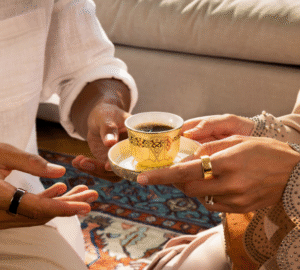For a long, healthy life, extending your healthspan (your years of healthy, disease-free living) is key. It all starts with establishing healthy habits—whether you’re in your 40s, 60s, or beyond.
Consider your body an investment where each positive choice—such as prioritizing good sleep, eating well, exercising, and taking time for mindfulness—contributes to your overall health. These efforts, accumulated over time, significantly enhance not only how long you live, but also how well you live.
On the heels of our longevity-focused campaign, Give Us the Finger, we asked the Oura community on Reddit and Facebook to share their secrets to living a vibrant, healthy life, at any age.
Oura Members’ Longevity Tips
1. Prioritize High-Quality Sleep
“Oura helps me get enough quality sleep!!! So important for my healthy aging goal!”
“Good sleep is a must.”
“Sleep! Quality of sleep makes everything else possible.”
The Oura community is right: Sleep matters.
A 2019 analysis of more than 55,000 people found that people who sleep 7 to 8.5 hours a night have the longest period of healthy, disease-free living. On the other hand, people who sleep less than seven hours have up to a 16% shorter healthspan and those with severe sleep disturbances have up to a 29% reduction in healthy, disease-free years.
During sleep, your body performs crucial repair and maintenance tasks—clearing metabolic waste from the brain, repairing muscle and DNA, and balancing hormones. Consistently spending enough time in the deep sleep stage supports immune function, reduces inflammation, and helps preserve cognitive function as you age.
Plus, high-quality sleep in terms of duration, sleep stages, and regularity has been shown to lower the risk of chronic diseases such as cardiovascular disease, hypertension, obesity, and neurodegenerative decline.
RELATED: How To Get Better Sleep
Member Spotlight: Shoe-g, 53, Australia
After cutting out alcohol and sticking to a consistent bedtime, Shoe-g is now sleeping better than ever—and is reaping the rewards. “I feel better than I did a decade ago. I climb, cycle, run, and do handstands—something I never imagined possible 10 years ago,” he says. What’s more, Shoe-g’s Cardiovascular Age has dropped by three years—a clear testament to his improved health. Shoe-g’s Tip: Health Improvement Starts with Awareness “Lifestyle intervention is so powerful to improve your wellness. But first, you need to know what’s really going on in your body,” he says. “That’s where Oura makes all the difference.” |
2. Adopt a Forward-Thinking Mindset
“Build your life now for then! I just turned 60… and I’m strong, healthy and capable! 💪”
“Focus on your health from an early age.”
“Showing up and feeling strong and positive is the most important thing to me.”
Research shows that adopting a growth mindset strengthens your motivation to maintain healthy behaviors over decades. Having this mindset changes your perception of hard work: You view challenges as opportunities for growth and improvement. As a result, you’re more likely to persist when things get hard, allowing you to reap the rewards over time.
A positive outlook and self-belief boost psychological well-being, which is associated with lower rates of depression, greater resistance to illness, better cardiovascular health, reduced mortality, and a longer life.
Additionally, those who see aging as an opportunity, not a limitation, often adopt more proactive habits that collectively support longevity. Start viewing your health today as an investment in your future.
Member Spotlight: Susanne, 68, Switzerland |
READ MORE: How to Lower Your Cardiovascular Age
3. Stay Active
“Exercise every day.”
“Never stop moving.”
“Walk around every hour.”
Regular movement is a potent longevity strategy that counteracts the effects of a sedentary lifestyle. Not only does it support cardiovascular health, but it also helps maintain muscle mass, bone density, and metabolic function, all vital in mitigating the risks associated with excessive sitting.
One study found that even brief bursts of activity—like a five-minute walk each hour—can counteract the negative effects of prolonged sitting.
READ MORE: How Many Steps Per Day Do You Actually Need?
Member Spotlight: Amy, 55, California |
4. Make Time to Relax!
“Do more of what you love.”
“Exercise and plenty of rest. Everything in moderation.”
“Combining strength and cardio helps me focus on reducing daytime stress.”
Chronic stress can speed up aging at the cellular level and may lead to elevated cortisol levels, inflammation, lower HRV, a weaker immune system, and a dysregulated nervous system.
Taking time for rest and relaxation is key to longevity. Activities like quick breathing exercises, meditation, or mental health days reduce stress hormones, improve heart rate variability (HRV), and protect telomeres. This in turn can guard against long-term health issues like heart disease, Alzheimer’s, and metabolic problems.
RELATED: 5 Research-Backed Tips to Age Well, According to a Neuroscientist
What’s Your Oura Story?
Everyone’s story is unique, and we’d love to hear yours. Share your story here.












 “Aging well feels amazing,” says Shoe-g. But it didn’t always: Shoe-g struggled with sleep issues for over seven years, which led him to Oura. “Understanding what was causing my sleep issues allowed me to make improvements,” he tells us.
“Aging well feels amazing,” says Shoe-g. But it didn’t always: Shoe-g struggled with sleep issues for over seven years, which led him to Oura. “Understanding what was causing my sleep issues allowed me to make improvements,” he tells us.
